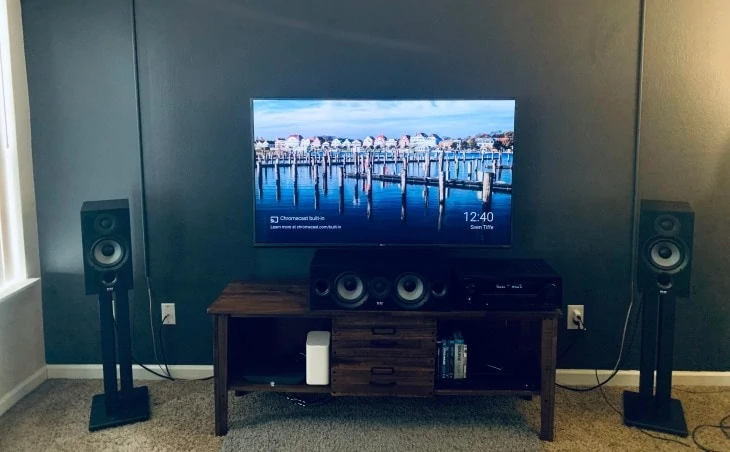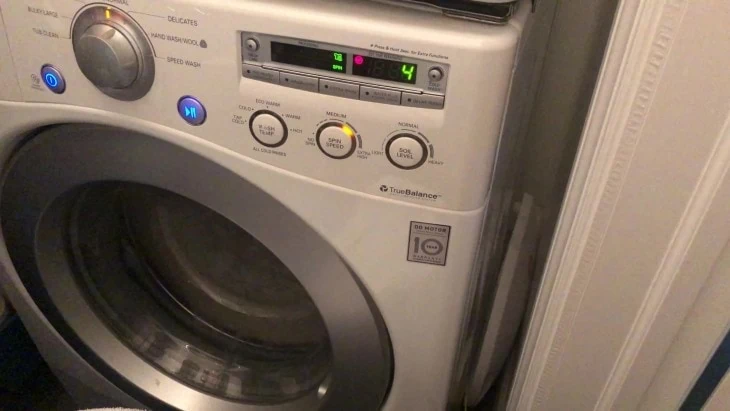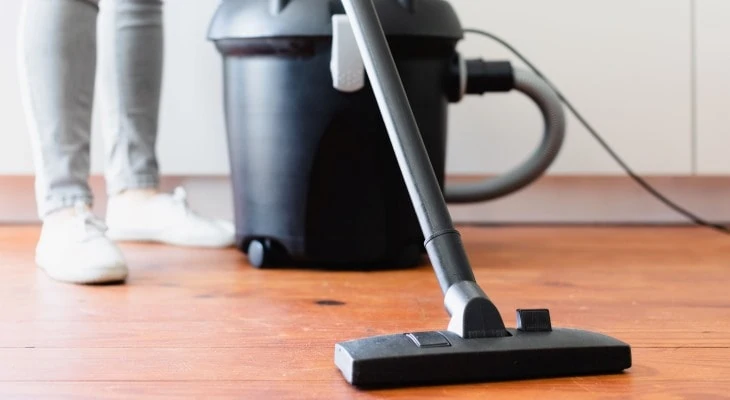If you live in an apartment building, you’re probably already aware of just how easily sound can travel between walls and floors, and ceilings, even if it’s unintentional.
Dealing with the everyday noises of living in close proximity to other people is one thing that anyone who lives in a communal living situation has to deal with, but fortunately, it’s something that most people and neighbors will adapt to.
However, if you’ve had complaints or are perhaps thinking about making a complaint against a neighbor of yours, you might be wondering if there are any rules or regulations regarding this topic.
Table of Contents
‘Normal’ Apartment Noise

You might be wondering what exactly constitutes ‘normal’ apartment noise. What kind of sounds fit into the ‘everyday,’ ‘day-to-day’ noises that you might expect to hear coming from your neighbor’s apartment?
Well, firstly, it’s key to remember that everything needs to be taken in context. People have different living situations, health problems, and jobs, which may mean they’re making noises at unusual times, or even unusual noises at normal times.
What makes something a normal sound is going to take a bit of understanding and awareness from you and your neighbors. For example, if you’re a musician who works from home recording sound effects for movies in your apartment, your neighbors might not be alarmed to hear strange sounds coming from your apartment during working hours.
Likewise, if you have a health condition that means you need specialist equipment while you’re sleeping, your neighbors may have to get used to the sound of an electrical appliance running through the night.
In short, everyone who lives in an apartment building is expecting to hear some kind of noise from their neighbors – it’s almost inevitable.
‘Normal’ apartment noise would include footsteps from the apartment above, chairs and tables moving around dinner time, people coming and going for work hours, conversation, TV sounds, vacuum cleaners, showers, etc. The list is substantial.
But it’s when these noises are extremely loud or happening at unusual, ‘anti-social’ hours, that things can become problematic.
How Loud is Too Loud?
Unfortunately, there is no textbook definition or example of what is ‘too loud.’ This decision will have to be made on a case-by-case basis by yourself or your neighbors.
Again, context is everything. Vacuuming on a Saturday afternoon would probably be seen as totally acceptable. Vacuuming at 3 am on Monday morning, probably not.
Likewise, if you’re recording instruments in your apartment, you may want to give your immediate neighbors some kind of heads up to let them know that there may be musical sounds from your apartment between certain hours on certain days.
If you then went and turned your amp up to 11 and started shredding in the early hours of the morning, you’ve gone from an acceptable level of noise to something quite different.
Loudness is subjective, and aside from depending on the nature of the noise and the time it occurs, the neighbor who’s hearing it also plays a part in whether that noise is too loud.
Also, consider the area you live in – an apartment block full of young students is likely going to be more forgiving to loud music played on Friday and Saturday night than an old folks apartment complex.
A lot of apartment buildings will have designated quiet hours, normally around 11 pm to 7 am. These may differ on weekends, but if you’re breaching those, other neighbors may have a real case against you with building management.
Decibel Levels

Although it’s unlikely that you or your neighbors are going to be in possession of a decibel meter, it’s helpful to know where things fall on the spectrum, if only to give you an idea of the levels of noise you would expect to hear on a daily basis.
While there is no set decibel level that could be said to be universally ‘too loud,’ these examples may give you an idea of what kind of noise you’re making (or hearing).
The quietest decibel level that human ears can detect is 0db. Anything below this will register as silence to our ears.
The most often used examples to illustrate decibel levels are 60db for an everyday conversation, 85db for a food blender, and 120db for a full rock concert stage show.
It is generally accepted that any noise registering at 85db or more is damaging to the human ear if prolonged exposure occurs.
Any noise over 70db is classed as ‘disturbing.’ While most large appliances such as dishwashers and washing machines clock in around 70db, it’s important to remember the context. Through walls and insulation, and if used at an appropriate time of day, these sounds will probably not strike your neighbors as ‘disturbing.’
The ambient sound of a typical indoor area will clock in at around 45 decibels. The same goes for all kinds of ‘normal’ sounds, e.g., footsteps, household appliances, conversation, etc.
This figure is for ambient sounds, meaning a decibel reader would be placed in the middle of a busy residential area, such as a quiet apartment; the decibels registered consist of input from many different sources of noise from the surrounding apartments.
Final Thoughts
When trying to answer the question ‘how loud is too loud?’ it’s vital to remember the context in which the loud noise is occurring.
What time of day or night is it? What kind of area/building do you live in?
Do you know your neighbors, and do they know you? What kind of noise can they expect you to make?
Some examples are easy to answer. If you and your friends set up a rehearsal space in your living room and practice day and night at full volume for a week straight, you’re probably going to get a well-deserved noise complaint or even a warning from your apartment building manager.
But if you’re practicing guitar at a reasonable volume for a couple of hours in the early evenings, you’re probably going to be ok.
The easiest way to figure out how loud is too loud is to talk to your neighbors and let them know what kind of noise you typically generate through your hobbies and day-to-day practices.
Hopefully, they’ll extend the same courtesy to you, and you can coexist in peace and quiet!

